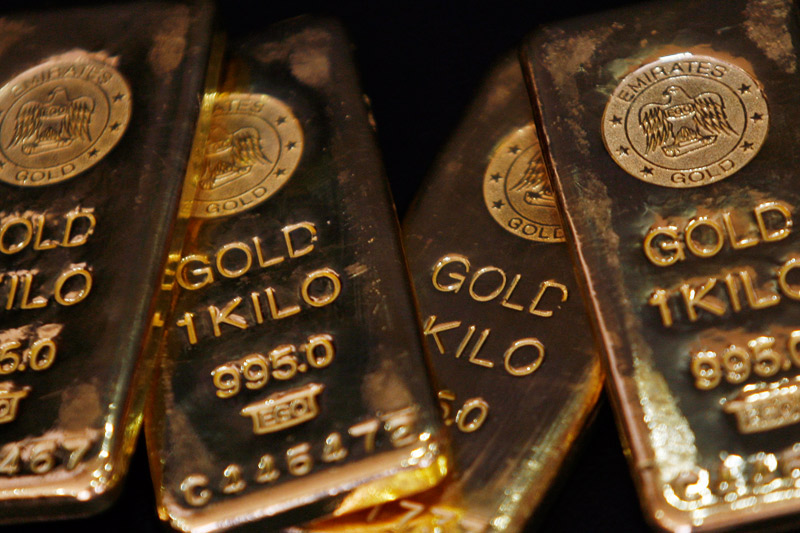By Barani Krishnan
Investing.com - The recession fear across markets is proving a boon for gold, which has managed to retain its own shine through daily gains as investors seek safe havens.
Both spot and futures gold rose for a second-straight day on Thursday after a choppy session that came after China’s threat to take countermeasures against new U.S. tariffs, before Beijing said it hopes to meet the U.S. halfway on trade.
{68|Spot gold}}, reflective of trades in bullion, was up $5.82, or 0.4% at $1,522.44 per ounce by 2:52 PM ET (18:52 GMT).
Gold futures for December delivery traded on the Comex division of the New York Mercantile Exchange, settled up $3.40, or 0.2%, at $1,531.20.
After daily climbs of more than 2% in recent weeks, gold’s ascent on recession fears has slowed lately. Investors are waiting for more central-bank easing, particularly from the U.S. Federal Reserve, before committing to deeper positions in the yellow metal. Even then, gold has steadily maintained its upward progress, gaining a total of more than 1% in Comex trade the past few days.
On Thursday, gold reached a session high of $1,523.91 on fears of a global downturn as investors fretted over the U.S.-China trade war, unrest in Hong Kong, economic stagnation in Germany and a slide in emerging-market assets.
The slide in government bond yields has been an alarming signal in terms of recession fears, said Norbert Ruecker, head of economics and next-generation research at Julius Baer.
"The overall uncertainty from the trade dispute is high and we also expect some central-bank action for recession-fighting to come over the next weeks and months," Ruecker said. "This should support the gold price at current levels."
Bond yields continued to give off warning signs Thursday, although the two-year yield dipped back below the 10-year, ending a day of inversion where short-term yields are greater than those on the long end. The yield-curve inversion, which has historically signaled a looming recession, triggered an extensive flight to safety on Wednesday.
Gold has gained over 8%, or more than $100, since the beginning of the month amid heightened trade tensions, sustained buying by central banks and hedge funds and ETFs in response to a slew of disappointing economic data globally.
"We think gold could rise to as much as $1,580-$1,600 over the remainder of the year – we think risks are skewed to the upside and would not rule out a temporary breach of the upper end of that range," analysts at UBS said in a note.
